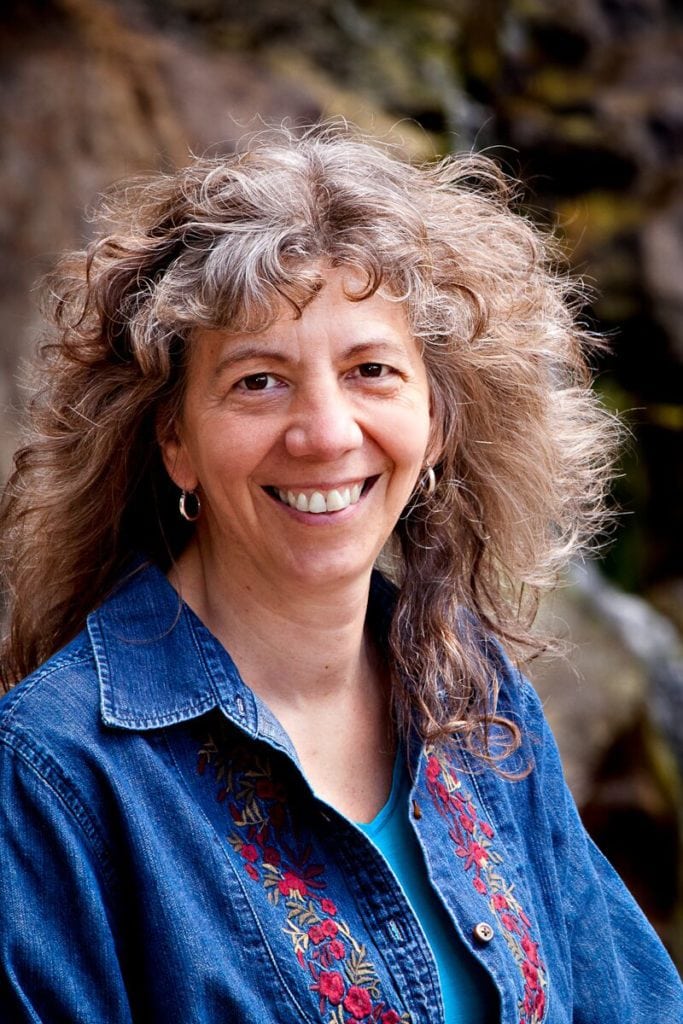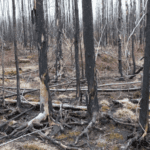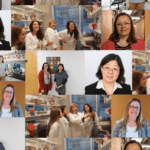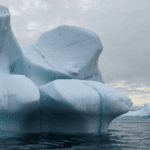Dr. Rita Winkler is a Research Hydrologist with the British Columbia (BC) Ministry of Forests, Lands, and Natural Resource Operations (MoFLNRO) in Kamloops, BC. She received a BSF in Forest Management from the University of British Columbia (UBC) in 1978 and an MSc in Forest Hydrology from the University of Alberta in 1980. In 1981 she became a Registered Professional Forester (RPF) in BC, with the goal of working as an applied field scientist.

Rita is the first of our interviewees to credit Star Trek with giving her the science bug. “It was common for kids to have very limited TV time when I was growing up—and I’d have gladly given up all other TV time for Star Trek. There were no arguments about getting the dishes done on Star Trek night!” She also benefitted from the mentorship of a keen grade seven science teacher, who assigned his students a project that required both a report and a working display.
“I wanted to do something related to water supplies in space, so my teacher gave me a shockingly large stack of journals to read. But he also told me to imagine I had shrunk into a miniature diver who was heading down the drain to see the water system for myself. He said that if I could figure out how to get clean water for astronauts, I could also include the working rocket in my display,” she recalls. “It piqued my interest—and that interest remains.” As a young adult, Rita’s travels through East Africa and Eurasia made a lasting impression of the water wealth most Canadians are privileged to enjoy, and the importance of sustainable water resource management.
In searching for work following her Masters, Rita found that water wasn’t considered an issue in forest operations, as the prevailing wisdom was that the water supply was endless. Thus she worked first for an ecological classification group and then as a silviculture/hydrology assistant. When she was downsized from the government in 1985, she started forestry and hydrology consulting. She credits those initial lean years, during which she worked in the broader forestry field, with providing the practical experience she needed to apply her scientific knowledge to solve operational issues (plus shooting cones out of trees to test their viability was downright fun!).
In 1990, Rita was contracted to establish a forestry degree transfer program at Cariboo College (now Thompson Rivers University (TRU)), and to teach several forestry courses. She enjoyed sharing her interest in water with others, and taught watershed management at TRU for 15 years. Her favourite seminar was the annual water tasting, which invariably showed that people favour the taste of local tap water over various bottled waters. In late 1991, Rita joined the BC government as a Research Hydrologist, returning to university on a part-time basis in 1994 to complete a PhD in Forest Hydrology (UBC, 2001). Her current research examines impacts of forest structure changes—due to logging, insect infestation, wildfire, and other processes—on water supplies.
These days, the biggest challenge to her research is finding the funding to support it, particularly since much of it requires multi-year datasets—similar to the American Long Term Ecological Research (LTER) network. “People don’t see an immediate return on long-term projects, and wonder why they continue to pay for measurements that just confuse them,” she says. “As scientists, we need to educate people about the value of long-term environmental research. We need to make sure that good science doesn’t fall to the cult of instant gratification, but at the same time ensure that investments in long-term research stay relevant so that successive generations of researchers can build on them by asking new questions.”
While she’s married without kids, and feels that she’s been lucky to have a scientist husband who understands the research environment—particularly the challenges of field research—Rita also believes that everyone, regardless of gender, has their own challenges balancing family, personal interests, and career.
That said, Rita has seen things change for women since she started in forest hydrology. “My career has spanned ideas ranging from women shouldn’t drive trucks, to women can’t possibly work in the field (particularly alone, and certainly not in a community watershed!), to women can’t be supervisors or professors (only technicians – interestingly because they’re more meticulous and reliable – and lab demonstrators or undergraduate lecturers),” she says. “Now women lead global research teams at the forefront of their disciplines, and go into space!”
Rita finds that overcoming stereotypes remains a challenge, regardless of your career stage. “Some people expect women to react in certain ways, do certain things, and so on, all of which are entirely up to each individual scientist. It’s hard work to keep from being cast as something that you’re not.”
She recalls a hilarious (in retrospect) anecdote that sums up some of the stereotypes towards women in science. “I was on a field trip to look at a rural water problem, and voiced my concerns about the land owner’s water intake. It was surrounded by a cache of failing household appliances, and affected by upstream activities. His reply to my comment that he was part of the problem? “Well, my dear, if you took the time to watch television, one day you would know as much about hydrology as I do.” Apparently, he’d seen a show about the Bog Man.
Along with the challenges, however, Rita has found some major rewards in her work. “Knowing you’ve done the best science that you’re able to finally solve a problem, sharing interesting things you’ve discovered or learned, teaching a class in which the students actually look interested, or changing an environmental management practice or policy for the better (i.e., getting a result from your years of hard work)—all of these make up for the challenges we face.”
She’s also found that, with more women in science, there are more people to talk to and learn from, thereby allowing for more networking and discussion of professional matters from which women were largely excluded in the past. In 1986, for example, Rita herself was the first female forest professional to serve on the Board of the Association of BC Forest Professionals. She’s quick to add, however, that she’s found similar comradery with her male colleagues, which she feels gives her a balanced perspective. “I think good scientists need all perspectives to be well rounded,” she notes, something that proponents of diversity in science would strongly support.
Her advice to young girls interested in science? “Go for it. Read everything. See the world. Do the math.” She also recommends both having—and being—a mentor. “Having been a hydrologist for so long, I notice that mentorship has many forms. When I was younger, I had outstanding grad supervisors, and I most admired their life-long interests in hydrology, absolute professionalism, enthusiasm, intelligence, fairness, balance, and humility,” she notes. “Through my career I’ve been mentored by professionals working in academia, industry, government, and consulting, who also put water resource sustainability above all other values, were ethical to a fault, encouraging, and not afraid to speak up when something I did either needed improvement or was well done. Now, late in my career, I find I rely on two different groups of mentors: those who have spent many years in the discipline and offer shared experiences, and young colleagues. The latter see hydrology with fresh eyes, are energetic, know all the newest and latest things, and never say “we did that in 1982,” but offer enthusiastic support for those projects that were started in 1982. Because of these young mentors I still enjoy being part of the hydrology community; they teach me a lot and after all learning is the reason scientists keep doing science.”
Rita’s careful to note that extremes in both work and life are dangerous, “an unnecessary vanity”, she calls them. Instead, she recommends balancing scientific pursuits with art and time spent outdoors. “The time you spend away from your science provides uninterrupted moments to put whatever you’re working on into perspective,” she advises. But most of all, be proud of your work and achievements, whatever anyone else says. She has no regrets over her professional career thus far. Her motto? “If you stay true to your principles you won’t have regrets.”




